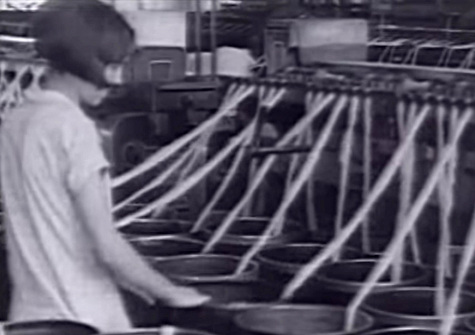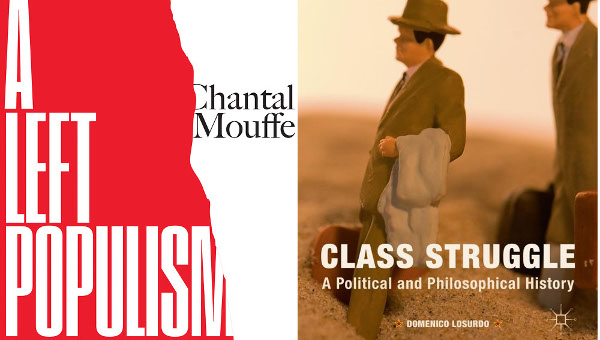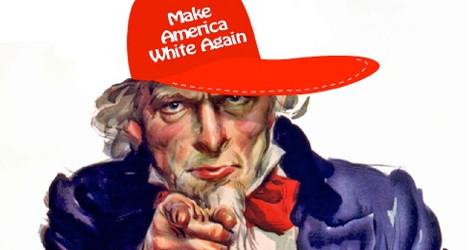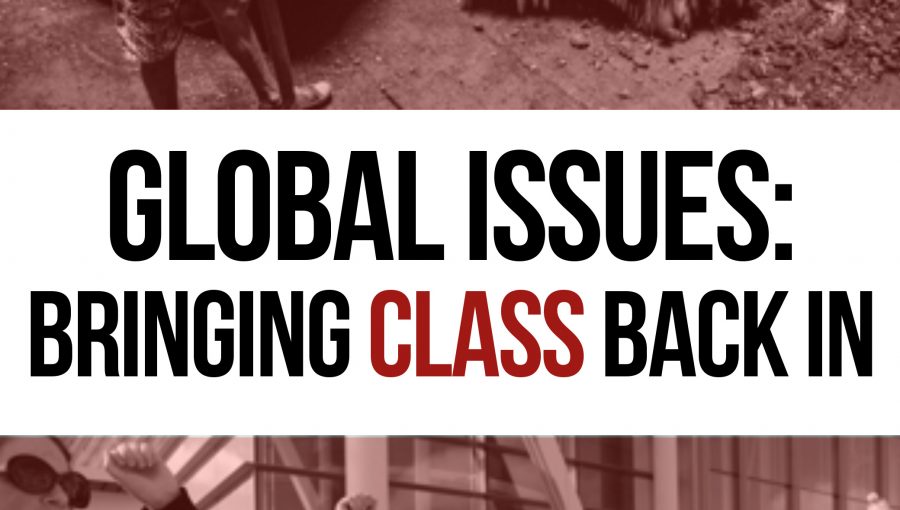In 1990, I watched the Polish film maker Krzysztof Kieślowski’s Blind Chance (1981/1987) without registering the paralyzing potential of a particular scene.
 The protagonist, Witek, meets an old Communist by chance on a train. As a result of that meeting Witek decides to join the Communist Party. Later, again by sheer chance, he runs into an ex-partner, also his first love. A beautiful, tender and fierce sex scene follows. In the calm of the after, Witek, almost absentmindedly, whistles the Internationale. His partner murmurs something approvingly. And then Witek says “How would you like it if I sang this everyday?” The young woman recoils. She knows he has joined ‘The Party’. She leaves the room and his life.
The protagonist, Witek, meets an old Communist by chance on a train. As a result of that meeting Witek decides to join the Communist Party. Later, again by sheer chance, he runs into an ex-partner, also his first love. A beautiful, tender and fierce sex scene follows. In the calm of the after, Witek, almost absentmindedly, whistles the Internationale. His partner murmurs something approvingly. And then Witek says “How would you like it if I sang this everyday?” The young woman recoils. She knows he has joined ‘The Party’. She leaves the room and his life.
For many years that scene haunted me and it is only recently that I am beginning to understand the contours of my unease with and attraction to it. The woman approved of the Internationale but recoiled from the organization that claimed to embody its spirit – the Party. There is a traumatic split here between the history qua memory of the working class and the organization of the working class, which is supposed to be the guardian of that memory. I am of course aware that in Kieślowski’s native Poland, the Party and the bourgeois State were braided in a particular relationship that does not apply to our times.
Yet, our current conjuncture invites a renewed rethinking of two historical imaginaries: first, what is class memory? To ask this question is really to reopen a discussion on what is class struggle – and, more specifically, how does our collective memorialization of struggles past inform our relationship to struggle in the present. Second, and relatedly, who can be this struggle’s archivist? And this is a question of organizational form: what form can emerge out of such struggle, and try – or fail – to shape it.
What is Class Memory?
If we think of the events and moments that have invoked the category of ‘class’ for us in recent times, we would confidently list the movements around Bernie Sanders, Jeremy Corbyn, Trump’s election, the unexpected Brexit vote, more recently both Marine Le Pen and Mélenchon’s rise in popularity in France. These examples, we would further say, encapsulate what the left have long called ‘class polarization’. The working class announcing its brutal political maladjustment in inviting radically opposed visions of our possible collective futures.
But why are these moments of class-ness as opposed to anything else? What kind of political rhetoric and historical correspondence make us identify them as ‘class’?
First, there is the rhetoric of the protagonists themselves. Sanders, Corbyn and Mélenchon have all made open or gestural nods to that one word banished for so long in our Cold War-neoliberal world: socialism. What could be more evocative of class-ness than the very invocation of the word socialism?
However, beyond this rather easy congruity, I would urge us to reflect a bit further, for this impressionistic ‘class-ness’ appears to encompass both poles of mobilization: From Trump to Sanders and from Mélenchon to Le Pen (indeed, recently the BBC – Radio 4, April 19, 2017 – interviewed a French worker who said he was torn between voting for Mélenchon and Le Pen).
What lends these moments their class-ness is thus their implicit identification with economic issues. The fact that this is implicit is of significance to my argument and we will come that later. But first let’s examine briefly the multiple ways in which the appeal of all these moments lie in an ‘economic’ argument. First there is the obvious and explicit attack on austerity. Both Trump (at least during his campaign), and Marine Le Pen have attacked ‘globalization’, international trade deals, and discussed the economic misery of their native working class. Jobs, conditions pertaining to jobs, lack of jobs and the specificity of jobs are inscribed all over the movements generated from both poles of the political spectrum, to which were added traditional ‘social democratic’ issues such as healthcare (Corbyn’s defense of the NHS), education (Bernie’s free college plan) and as Marine Le Pen herself characterized Brexit: ‘reindustrialization’.
What is significant for our argument is that this intense and anxious economic discourse, from both the right and the left does not actually use the category of the ‘working class’, or even the term class, as its analytical or operational pivot. The discourse, however, does have a pivot – and it is as powerful as class: it is the ‘nation’, all the way from ‘Make America Great Again’ to ‘Unbowed France’.
The Marxist Left’s own specific historical training enables us to nominate this current rhetorical and political move, rightly, as a class discourse.
Let us go back to our original identification challenge, this time to try to list recent movements and discourses that we, on the Left, have not listed as evocative of ‘class’, or class as metonymically standing in for the ‘economic’. Now several apparently discrete categories of movement appear before us. We can name Black Lives Matter under ‘race’, the movement for Trans rights or reproductive justice under ‘gender’, the BDS movement under ‘anti-imperialism’ and so on. Not only have we not given these movements the blessing of ‘class’ or ‘class struggle’ we have, on occasion, analytically (as opposed to politically) counterposed these as movements of ‘identity’ as opposed to class struggle.
Power of Redemption
This is the kind of historical training we need to rethink in the current conjuncture, as it is neither useful nor Marxist. Given that, in the last four decades neoliberalism has either smashed or chipped away at workplace organizing and organizations, as a left we should have expected struggle to erupt away from the point of production. The fact that these are not directly about wages, or work, does not invalidate them as class struggles in the Marxist sense. Indeed, I submit that at the current moment it is these struggles that contain the power of redemption over the discourse of economic deprivation discussed above. How?
First, if we turn to the so called ‘economic’ rhetoric of what has been called the populist right and the renewed Social Democratic Left, as we noted, it is firmly anchored to the nation. That race and/or immigration will be the weak links for the populist Right is perhaps no surprise, but they remain unhealed wounds for the renewed Social Democratic left. Melenchon is bound to laicitie and its attendant Islamophobia; Bernie has been consistently wrong on Palestine and other imperial policies; and even Corbyn, the best of them all, is not for the complete abolition of borders. Without reducing the complexities and contradictions of this tendency, we can broadly say that it is predicated upon anti-austerity politics combined with a national anti-elitism. National borders remain the chains that bind their possibilities.
If these were the politics proclaimed by such mass parties, in say the 1980s, the Far Left’s demarche would almost be predictable. Unfortunately there is, for the first time in decades, a Far Right anti-austerity and anti-elitism on offer, and if the Social democratic left seeks to cohere its ‘economy-as-class’ discourse around the nation state, the Right can do that job with far more passion and conviction and hence far more successfully.
For the Far left, especially the Marxist Left, then, questions of oppression, i.e. race, gender, immigration, and questions of internationalism cannot be something we do in addition to class struggle but ought to be the redemptive levers to prise apart two sets of political forms: one, the economic nationalism on offer from the Far right and the Social Democratic Left; and two: the oppression politics of the 1 per cent, that came from the Centrist neoliberals for the last few decades, whose claim hinges on the idea that it is participation in, not rejection of, capitalist structures that is best route out of oppression. More women Presidents, more vegans in the IDF.
The obsessive religiosity of identifying struggles around workplace issues as the only ones worthy of our attention is not only doomed to failure in this moment when union density is at a historic low, but this political methodology does not bear up either to Marxist theory or to actual labour history. Even for workplace struggles, our imagination and hence theory has been too often narrowed to what our early Marxist predecessors might have called ‘economistic‘ thinking. For instance, it is important to remember that the enormous success of the CIO and the combativity of the working class in this country was not predicated upon the issues of wage raises or money benefits but rather conditions of work in the shop. Writing reflectively about the CIO in the 1960s – republished recently by Viewpoint – the Black radical labour organizer James Boggs wrote that the
“CIO movement gave the American public its first real taste of class consciousness and social thinking, establishing … for the first time the idea of democracy on the job, in the factories, the offices … it has established a framework within which Negroes could fight for equality inside the plant. It has done the same for women workers.1
If Boggs’s excellent Pages from a Negro Worker’s Notebook were to be summarized as a twitter hashtag it would read: unions need to build social power. Or: unions need to establish themselves both in the workplace and in society. Let us dwell on this concept, for it is relevant to our argument about broadening the definition of class struggle and expanding the understanding of the ‘economy’.
One of the many uses of social reproduction theory and the way many of us have applied it to our current moment has been, not, as many of its critics wrongly think, to draw our attention away from the point of production, but rather to demonstrate the imbricated relationship between the spaces of production of commodities and spaces of production of labour power. Social Reproduction Theory is particularly useful in illuminating the relationality of capital and hence has the capacity to indicate vital strategies for confronting it in our times.
Applying Social Reproduction Theory to James Boggs’ observations above, we could say that at a time when labour organizing was weak or non-existent at the point of production, creative organizing in non-work spaces, in working-class communities, neighbourhoods, and churches, created organizational and insurrectionary traditions that helped build working class confidence and power and ultimately assisted in building in the workplace. Differently put, social reproduction theory is governed by a politics of reconfiguration of lived experience and forms of human life within capitalist social relations.
The relationality of capital is particularly central to social reproduction theory and has specific valence to the argument we are making here about an expanded notion of class struggle. Capitalism does not just produce commodities, but in order to do so in a continuous sequence, it also needs to reproduce capitalist social relations. But every site of reproduction is a doubling where twin possibilities exist: that of reproduction of existing relations and the interruption of such relations. Thus every struggle that challenges the reproduction of existing social relations, whether by demanding that the police be disarmed or borders be opened, has the internal potential to take general form, irrespective of whether they began within the workplace or without.
In an angry letter to Paul Lafargue and Laura Marx in 1870, Marx engages with Bakunin thus:
“the working class must not occupy itself with politics. They must only organize themselves by trades-unions … you see what a caricature he has made of my doctrines! … The ass has not even seen every class movement as a class movement, is necessarily and was always a political movement.”
The equating of Bakunin with certain equine species aside, what does Marx mean here of class movement as political movement?
He elaborates on the concept further a year later in a letter to Friedrich Bolte:
“Every movement in which the working class comes out as a class against the ruling classes and tries to coerce them by pressure from without is a political movement … The attempt in a particular factory or even in a particular trade to force a shorter working day out of individual capitalists by strikes, etc. is a purely economic movement. On the other hand, the movement to force through an eight-hour, etc., law, is a political movement.”
When we write the memory of class struggle of our era shall we abandon the struggle for Palestine, antiracism and feminism to the margins of our chronicle and await the purely magical workplace struggle to emerge out of a vacuum? Or shall we try again to reread Marx and think about the relationality of struggle? If the latter, then to be the chroniclers of this memory we need archivists appropriate for the task, or organizational forms that do not envisage the future only as an endless repetition of the past or try to squeeze social reality into a convenient Marx or Lenin quotation.
Marx urges us to expect new organizational forms during social movements. “If these movements,” he wrote in the same letter to Bolte “presuppose a certain degree of previous organization, they are in turn equally a means of developing this organization.” Organizations that are simply the inheritors or guardians of the past may not be that archivist, as the past may have been too ruinously cleaved from the present. Those organizational forms that can force a futural anticipation onto the past will perhaps be our first Maroon shelters from where a new ‘horizon of expectations’ can be forged. •
This article first published on the Salvage website.





